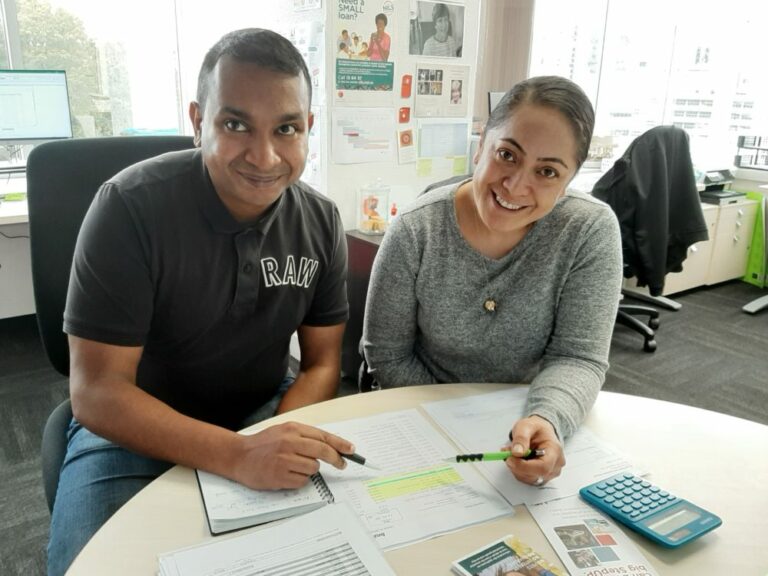I had to stand up for myself
March 8, 2022
It’s taken Holly two years and a lot of inner strength to be able to move on with her life because of the economic harm her ex-partner inflicted on her.
When Holly, a parent of two, and her long-term partner mutually decided to part ways, they worked out their finances and agreed to go 50/50 on all outstanding repayments towards their joint debt.
A few months on, Holly soon learned he’d stopped paying his half when a debt collector came knocking on her door to repossess household items.
“I had to call my ex on the spot to try and get him to pay his half so they wouldn’t take my stuff away. He did that one repayment, but little did I know that this was the beginning of a two-year long headache.”
Our research into economic harm found women are often left repaying more than a half share of joint debt after a separation. One of the reasons is because women are more likely to be concerned about retaining a good credit rating so they can provide housing and utilities for their children.
Research: Economic abuse in New Zealand
Discovering DEBTsolve
Holly’s counsellor suggested she look into our free DEBTsolve programme to help her get on top of her money and find out what options she had.
Holly decided to join DEBTsolve and began working with our Financial Wellbeing Coach, Victoria, to map out a plan of action that worked for her to help get on top of her debts.
Worried about her ex-partner not paying his half of the joint loan, and her car being repossessed because it was used as security against the loan, Holly went through an affordability assessment with Victoria and discussed strategies for managing the debt.
With assistance from Victoria, Holly negotiated to have her car removed as security and put a household item in its place – which was a huge relief she told us.
DEBTsolve helps you take back control of unmanageable debt. It combines debt coaching, advocacy and debt solution loans of up to $15,000.
The inevitable
Eventually the lender came knocking to let her know that her partner isn’t paying the other half of the loan and that she would have to either pay it or have a default in her name.
“I freaked out. There was no way I could pay it off with my supported living payment, while looking after two kids and trying to pay the bills at the same time.”
Holly told Victoria about her ex-partner refusing to pay his half of the joint loan.
As Holly explained the situation, Victoria recognised that economic harm could be involved and called Vanessa from our economic harm team to help.
Like many people, Holly didn’t realise that the economic harm her ex-partner was causing is illegal under the Family Violence Act.
“After speaking to Vanessa about economic harm and then looking back at our relationship, I realised all the loans we took out were because he wanted them. He was constantly spending all our money. He was the reason for all the loans.”
Standing up for herself
“I had to stand-up for myself. Lenders don’t care about the fact one partner has paid for their share of the joint loan; they just want the money repaid. Because they couldn’t find him, they just said – you need to pay for it.”
Holly worked together with Victoria and Vanessa from our team to negotiate with the lender.
After considering Holly’s case, the lender excused the remaining debt under its hardship policy – meaning that after two years of stress and back-and-forth, Holly could officially begin to move on with her life.
Having the loan excused also meant Holly’s ex-partner didn’t have to pay his remaining half of the joint loan and had no repercussions for it – which after everything she had to go through, Holly found unfair.
We asked Holly how she is feeling now her two-year battle is over.
She said:
“It was struggle. It took a lot of time and effort and my mental health suffered throughout it all. I don’t know where I’d be without the support and love from my kids through this whole process – I am so thankful.
“Knowing that I can finally move on and not have my car repossessed is a big relief. Thank you to Victoria, my Financial Wellbeing Coach, for all your help.”
Finding support
If you are concerned about economic harm or want to talk to someone about the money side of your relationship, our Economic Harm Specialists are trained in advocacy and understand the impact of economic harm. You can speak to an Economic Harm Specialist by calling 0800 466 370 and selecting option 4.
Before you take on joint debt, it is important to understand joint and several liability as there’s a chance you could be left paying all the debt if the other person decides not to pay.
Click here to learn more about banking, joint loans and economic harm
Or you can ask your lender for more information.
If you suspect economic harm is occurring, other forms of family violence may also be present. Family violence agencies are best placed to work with you to establish whether other forms of abuse are occurring in your relationship and we would encourage you to call one of the agencies listed at the bottom of our economic harm page.
It is important to take some form of action to stop or address economic harm, but only when it is safe to do so.
Please note: the name and any identifying details have been changed to protect the privacy of the person involved
Related

The long-term impact of economic harm
